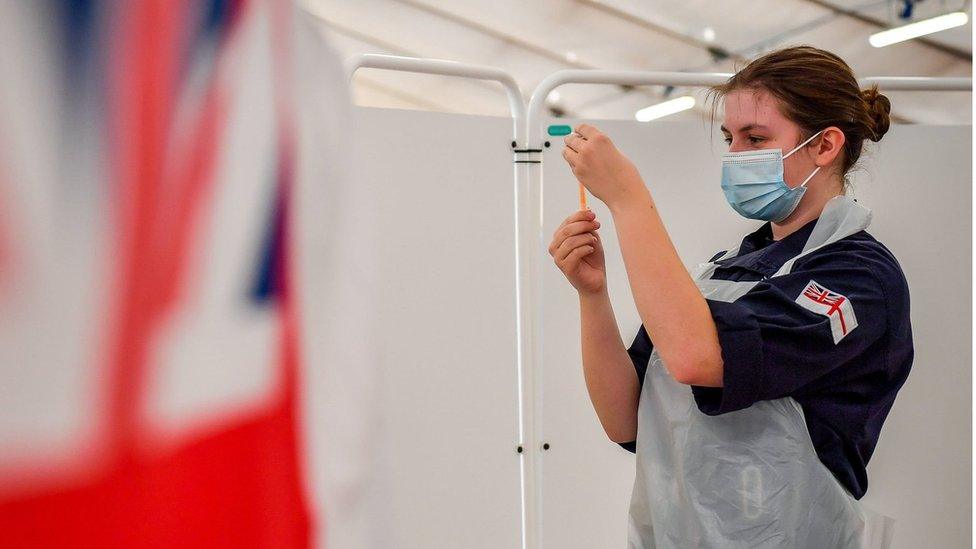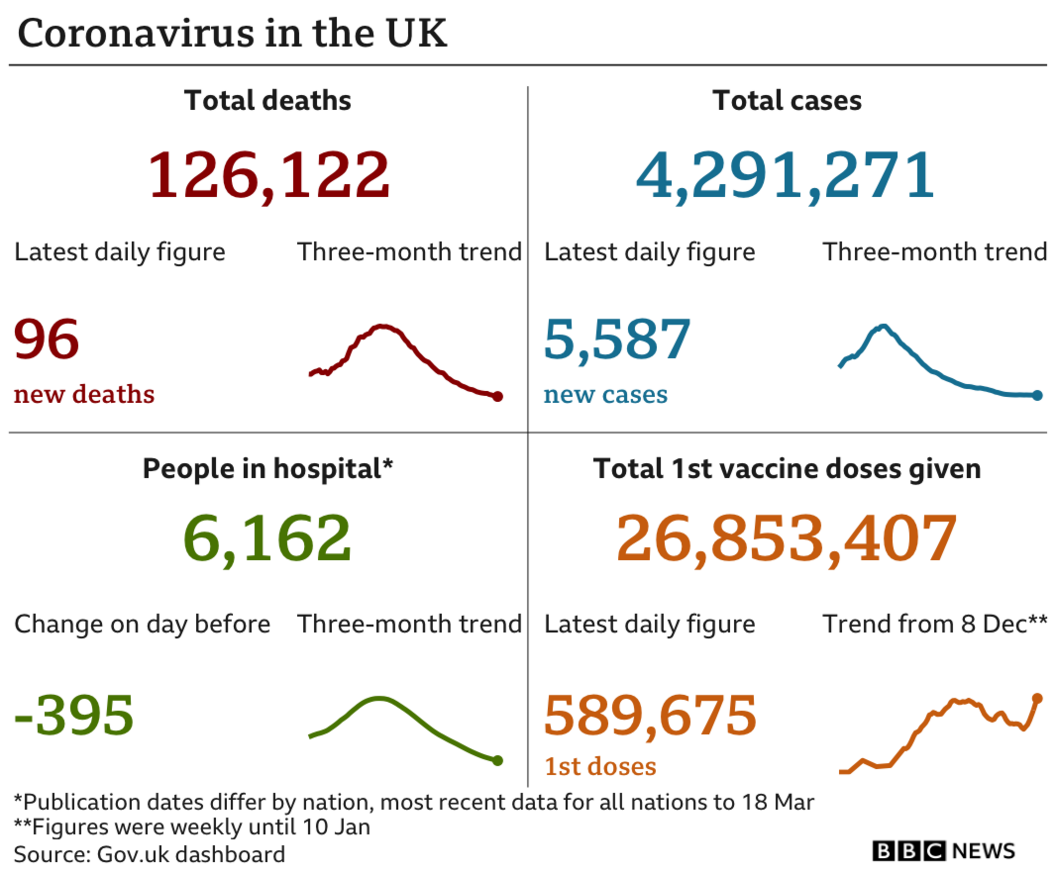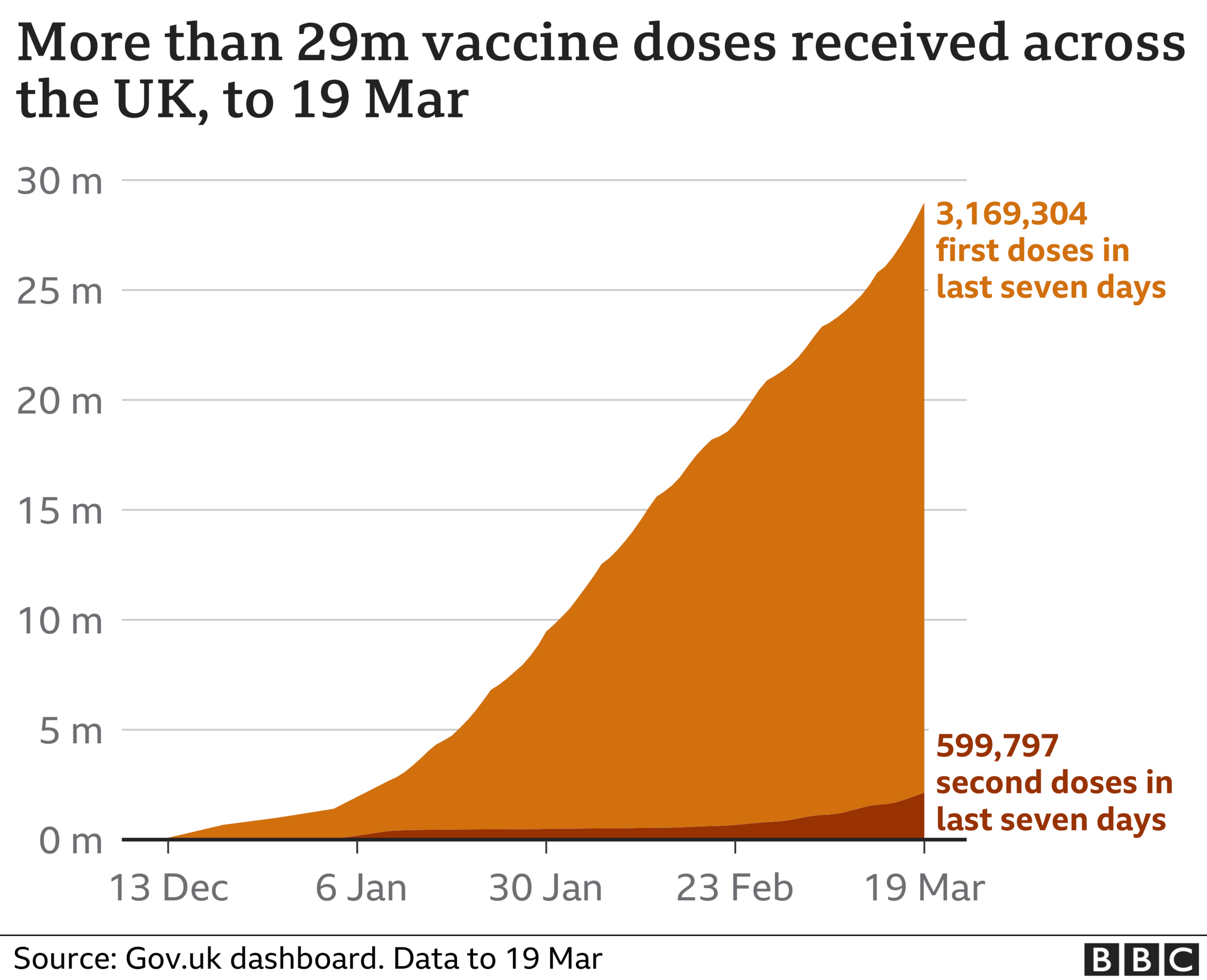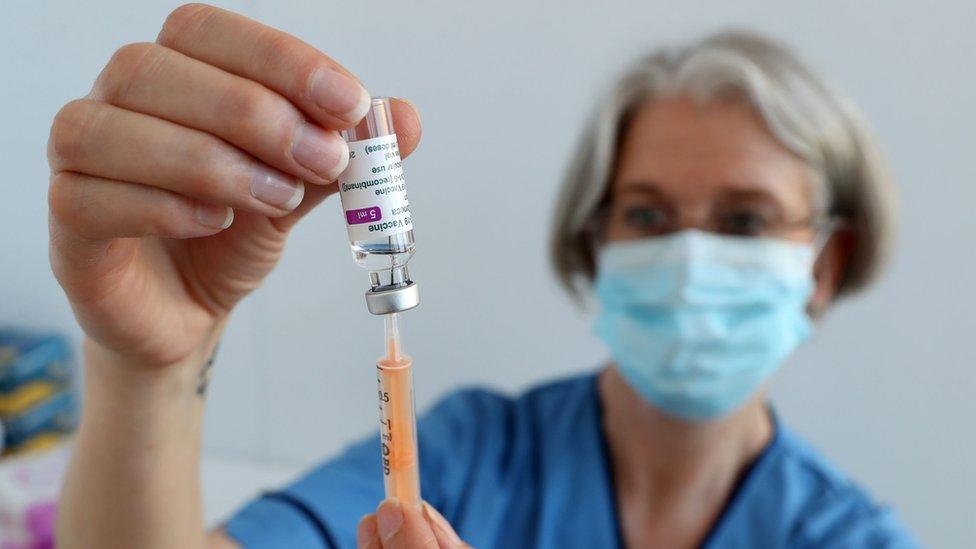Covid-19: Record day for UK with 711,156 vaccinations given
- Published

Friday was a record day for Covid vaccinations in the UK, with a combined 711,156 first and second doses given to members of the public.
It means that half of all UK adults - some 26,853,407 people - have now received a first dose of a vaccine.
Health Secretary Matt Hancock said the latest milestone in the rollout marked a "phenomenal achievement".
Prime Minister Boris Johnson - one of those to receive a first dose on Friday - also hailed the landmark.
A total of 2,132,551 people have also received their second dose of a vaccine, government figures show., external
Another 96 deaths within 28 days of a positive Covid test have also been recorded in the UK, as have a further 5,587 cases.
"Vaccinating over half of all adults is a phenomenal achievement and is testament to the mammoth efforts of the NHS, GPs, volunteers, local authorities and civil servants in every corner of the UK," said Mr Hancock.
The news comes after the government confirmed a shipment of about five million doses of the Oxford-AstraZeneca jab would be delayed, resulting in an expected reduction in the number of first doses - including for the under-50s - given during April.
Meanwhile, European countries, including France, Germany and Italy, have begun offering the Oxford jab again after a pause over safety fears.
Mr Hancock said he was "absolutely delighted" to reveal the UK had reached the vaccination milestone.

He added: "It's a huge success and I want to say many, many thanks to all those involved, including the half of all adults who have come forward."
Mr Johnson - who received his first dose on Friday - added he was "immensely proud of the progress we have made so far in rolling out vaccinations".
"There is still further to go and I encourage everyone to take up the offer when asked to do so," he said.
Despite the progress of the UK's vaccine rollout, a scientist advising the government has warned overseas holidays would be "extremely unlikely" because of the risk of travellers bringing Covid variants back to the UK.
The UK faced a "real risk" if people travelled abroad in the summer, Dr Mike Tildesley, a member of the government's Scientific Pandemic Influenza Group on Modelling, which feeds into Sage, said.
Transport Secretary Grant Shapps said it was "too early to tell" when holidays abroad would be allowed.
Under the current roadmap for easing restrictions, the earliest date people in England could holiday abroad would be 17 May.
Grant Shapps: "The 17th of May is the very earliest for international travel"
With all over-50s now able to take up the offer of a vaccine dose, the vaccination programme approaches a target to offer a vaccine to the top nine priority groups, as determined by scientific advisers, by mid-April.
These included frontline health and care workers, people who were clinically vulnerable and those with an increased risk of hospitalisation - covering 99% of those at risk of dying from Covid-19.
In Northern Ireland and some areas of Scotland, people in their 50s were already being offered a Covid vaccine. Parts of England may already have started offering it to this age group too, with Wales targeting an offer of one dose to all over-50s by mid-April.

The most-recent issues with supplies meant the vaccine rollout would be "slightly slower than we might have hoped but not slower than the target we had set ourselves", Communities Secretary Robert Jenrick said on Friday.
Those with appointments for second doses should attend as normal and it is expected April could see more second doses than first doses for the first time.
Alongside the Oxford vaccine and the Pfizer-BioNTech jab, the UK has also approved a third vaccine - from Moderna - which is due to start being rolled out in late spring.
A vaccine from Novavax has shown promising results and will be made in north-east England, and a single-dose vaccine from Johnson & Johnson has also been shown to be effective.


Related topics
- Published18 March 2021
